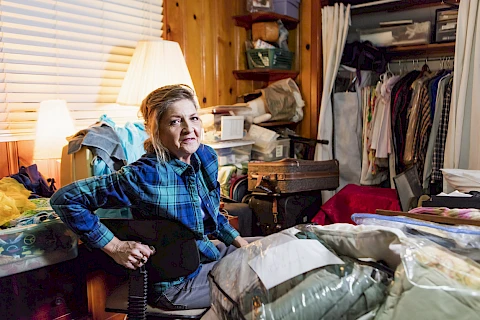
Hoarding disorder affects many people, and seniors are no exception. It can lead to safety hazards, health risks, and emotional distress, often stemming from deeply rooted issues. Recognizing the signs of hoarding in seniors is critical to ensure appropriate support and interventions.
What is Hoarding Disorder?
Hoarding disorder is a mental health condition where individuals have difficulty parting with possessions, regardless of their actual value. It leads to excessive accumulation of items and cluttered living spaces. Many people think hoarding is just about being messy or lazy, but it's more complex. Individuals struggle emotionally and psychologically with the thought of discarding items, making it hard for them to let go.
Physical Indicators of Hoarding
One of the first signs of hoarding is the state of the living space. Excessive clutter is an indicator, with rooms filled to the point where it becomes challenging to move around. This clutter often leads to difficulty navigating the home, as narrow pathways between piles of belongings can make walking around risky. Unsanitary conditions may arise, as accumulated items can result in dust, mold, and pests, creating an unsafe living environment.
Emotional and Psychological Signs
Hoarding isn't just about physical clutter. It also involves emotional and psychological challenges. Seniors may feel severe anxiety about getting rid of things, no matter how trivial they seem. Personal items often have significant emotional importance to the individual regardless of their value. This attachment can stem from various sources, such as past experiences or a fear of losing memories associated with the items.
Social Indicators of Hoarding Behavior
Hoarding can impact a senior's social life. Seniors might experience feelings of shame or guilt about the state of their home and their inability to keep it organized. They may start avoiding social interactions, making them increasingly isolated. Due to the mess and clutter, many seniors will not invite friends or family into their homes. The disorder can also lead to tension with loved ones, straining relationships, and causing feelings of isolation. This reluctance to socialize can further exacerbate emotional distress and create a barrier to seeking help.
The Impact of Hoarding on Quality of Life
Hoarding can have severe effects on a senior's life, from physical health to mental well-being. Excessive clutter can lead to falls, fire hazards, and difficulty getting medical help in emergencies. The stress and anxiety from hoarding can also lead to depression and increased anxiety, worsening the condition. Living in these conditions can significantly affect daily life, affecting overall happiness and well-being.
Seeking Professional Help for Hoarding
Getting professional help for hoarding is critical to improving a senior's living conditions and emotional well-being. Specialized therapists offer support by providing strategies and coping mechanisms to manage the emotional aspects of hoarding. They can help seniors address the underlying causes of their behavior and work toward creating a safer, more organized home environment.
Senior Helpers Can Assist With Light Housekeeping and More
Recognizing the signs of hoarding is the first step in helping affected seniors lead healthier, happier lives. If you or someone you know shows signs of hoarding, know that help is available.
If you’re struggling with daily living activities, need help with light housework, or could use some assistance with various aspects of senior care, Senior Helpers Whittier-Downey can help. We offer professional in-home support for seniors in Whittier, Downey, Pico Rivera, and Bell Gardens. Contact us for more information!